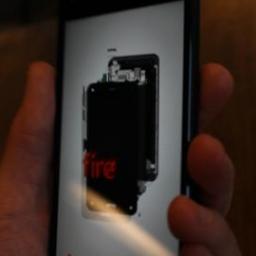Where mainframe computers are concerned,
the Technology Spectator says it better than I could:
In a world where IT continues to power forward, the longevity of the mainframe and its place in today's computing environment is increasingly being questioned. With 'change' often confused with 'progress', a mainframe's durability can work against it. As demand grows for more agile and innovative systems, it is difficult to reconcile a technology in its sixth decade with the technology we carry around in our pockets or use at home. But while dissenters continue to challenge the validity of the mainframe, the technology keeps on proving its worth.
Few consumers know or understand that "ancient" mainframe technology is working behind the scenes in the banking, travel, and insurance sectors, and that's unlikely to change. What
is changing though is the insertion of start-up mentality and innovation into the mainframe ecosystem, like
Splunk, a search specialist, teaming up with Syncsort to unlock some of the data being produced by mainframe systems. What does not change though, is the fact that
mainframe systems require specialized skill sets, and those experts are getting hard to find. Not a good thing in an environment of ever-more-stringent compliance and regulatory requirements.

The medical field isn't exactly embracing the digital revolution, although it's quick to implement scientific progress in other areas. Trapped in a mess of legal, privacy, and insurance regulations and hampered by financial disincentives to implement digital record keeping, many medical centers still rely on voluminous paper records. But that's changing, and with change comes good news and bad.
First come the breaches of privacy. In Cincinnati,
a woman is suing the University of Cincinatti Medical Center after a medical clerk posted the woman's medical records (showing name and diagnosis of syphilis) to Facebook's page "Team No Hoes."
Privacy is also compromised when medical records become part of court hearings, as many legal cases become part of public record and are searchable online.
But these risks were part of the paper system as well. Recently,
a huge number of paper medical records turned up in York, UK, and Michael Schumacher's paper records
seem to have been stolen and put up for sale.
So what do we need to keep sensitive, personal, medical information private? Think quickly, because already some doctors can
access your medical records via Google Glass as they talk to you.
Stick around long enough in the tech sector and the "news" starts to look old: thin clients get fat, then slim down again. We do our processing on the server, then the desktop, then the server again. That doesn't mean progress is always for the better, except when it is.
Still have fond memories of a tech era other than present, even if you recognize time marches on? This poll is "approval voting" so select one or more, anything that makes you nostalgic. Obviously it was impossible to get all the choices on the list, so if we've forgotten anything, add it into the comments. Happy Monday, everybody.
Start here:
http://pipedot.org/poll/17/tech-that-im-nostalgic-forThis week on BSDNow the BSD communities' podcast, features an interview with Bryce Chidester on running a BSD-based shell provider, a video tutorial
'Chaining SSH connections', and other highlights:
Watch now:
YouTube, or Direct Downloads at
BSDNow.tv

From
ThreatPost via
Soylent-not-a-food-trademark-infringing-site, a single criminal hacker planted trojans on Synology NAS units around the world and managed to use the little boxes to mine $620,000 worth of "DogeCoin", the cuter version of the BitCoin "virtual currency".
This, much more than the SuperMicro vulnerability, tells me I'm living in strange new times indeed. A home network-storage appliance used over the Internet to create wealth out of nothing but electricity running some decryption code. These are concepts that just didn't even exist a short time ago.
Had the hacker been just a little more conservative in resource utilization, the scheme may have gone undiscovered for much longer. The jig was up only after Synology users complained about performance to tech support! (Clearly, no one, anywhere, ever checks their router and firewall logs for unusual destinations).
I find this interesting as I had just been reading
Ars Technica's new writeup of DIY NAS solutions as alternatives to the expensive fixed purpose NAS devices (some interesting alternatives mentioned in the comments there).

CBC News is looking out for your health and safety, by combining unrelated quotes by Stephen Hawking and Elon Musk, adding a Terminator image, and making sure you are
well warned of the impending robot revolution. Here it is:
Two leading voices in the world of science and technology warn that robots equipped with artificial intelligence could be leading humanity down a dangerous path.
Elon Musk, the billionaire founder of SpaceX and Tesla motors, told a pair of CNBC reporters that he thought robots were "dangerous."
"There have been movies about this, you know, like Terminator."
Despite his reservations, Musk himself has recently invested in an artificial intelligence company.
The first strike by the robots would be, naturally, to cripple humanity by
operating on human unborn in the womb. That's a bad thing, no a good thing, no wait, now I'm confused.

If you're running a server on Supermicro hardware, you're operating with your pants down. That's the conclusion by security firms who warn
exploiting bug in Supermicro hardware is as easy as connecting to port 49152. There are very likely at least 32,000 servers broadcast admin passwords.
Over at
CARI.net security researchers explain:
On 11/7/2013, after reading a couple articles on the problems in IPMI by Rapid7's HD Moore (linked at the end), I discovered that Supermicro had created the password file PSBlock in plain text and left it open to the world on port 49152.
If you take a look at the /nv directory, you will find the file IPMIdevicedesc.xml file; a file which was already known to be downloaded via the aforementioned port. You can quite literally download the BMC password file from any UPnP enabled Supermicro motherboard running IPMI on a public interface (reference link at the bottom of this article). This is not the only file that is vulnerable to this.
Read more
here.
Wow - This is big.
The New York Times has selected the folks from Mozilla to develop their new comment and contribution system.
The New York Times and The Washington Post announced on Thursday that they had teamed up with Mozilla to develop a new platform that will allow them to better manage their readers' online comments and contributions. The platform will be supported by a grant of roughly $3.9 million from the John S. and James L. Knight Foundation, an organization that gives substantial money to promote journalism innovation.
Mozilla, the maker of the Firefox web browser and a nonprofit that works for open standards on the web, will help The Times and The Post build the technology for a platform tailored to news organizations. The platform, which will take approximately two years to complete, will eventually be available for other news organization to download free.
Looks like opportunity in many senses: a chance to rethink online commenting, a chance for Mozilla to make a buck, and a chance to put an axe in the head of "Sign into Facebook to comment" type approaches. Me, I would've recommended they install
Pipecode. But hey.
 For a server OS, FreeBSD has certainly had what I'll affectionately call a "lousy" console for a long time. In fact, it was my first disappointment the first time I installed FreeBSD on a server. Fortunately, I'm not the only one who felt that way.
For a server OS, FreeBSD has certainly had what I'll affectionately call a "lousy" console for a long time. In fact, it was my first disappointment the first time I installed FreeBSD on a server. Fortunately, I'm not the only one who felt that way. 



